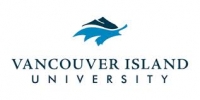






Fisheries and Aquaculture has long been an area of specialization at Vancouver Island University. VIU has an international reputation in fisheries and aquaculture applied research, technology transfer, training, and education. VIU boasts an extensive array of facilities and equipment: three cool-water hatchery complexes; a warm-water hatchery; salt-water system; fish disease laboratory; lake study field station; oyster farm; sturgeon, trout, and wild and cultured salmon research programs. The proximity of VIU to fresh-water lakes and streams, as well as to the ocean and estuaries allows fieldwork in these habitats to be a central part of the students’ education. The new Centre for Shellfish Research (CSR), located beside the Department of Fisheries & Aquaculture, was created to facilitate the emergence of the B.C. shellfish aquaculture industry as a sustainable economic engine for healthy, vibrant coastal communities. CSR faculty teach upper-level courses in fisheries and aquaculture, and there are many opportunities for students to participate in CSR research projects. Furthermore, the federal government’s Pacific Biological Station in Nanaimo provides access to numerous acclaimed fisheries scientists and one of Canada’s best libraries in this field. Fisheries (sports and commercial) and aquaculture are immensely important throughout the world and are key to the economy (and employment) in British Columbia. The B.Sc. in Fisheries & Aquaculture has been designed to offer students a great deal of flexibility, and there are several routes through this program. Students may begin in year one and complete the program at the end of year four, or they may enter at year two or three from Vancouver Island University or from other institutions. They may also complete the two-year Fisheries & Aquaculture Technology diploma program and then proceed to the B.Sc. with up to two years (60 credits) of advance credit. Some students elect this pathway after completing the Technology program and then working in industry for a few years.
| Number | Duration |
|---|---|
| 4 | year |
A graduate with a Minor in Earth Science could also anticipate finding employment within industry, consulting companies, or government agencies. Examples of jobs a student with a BSc Minor in Earth Science could seek after graduating include: a Geological Assistant on a mineral exploration project a Field Technician for an environmental consultant a Land Planning Assistant for a government agency a Research Assistant at a university or college an Earth Science Teacher at elementary or secondary level (with combined B.Ed. degree)